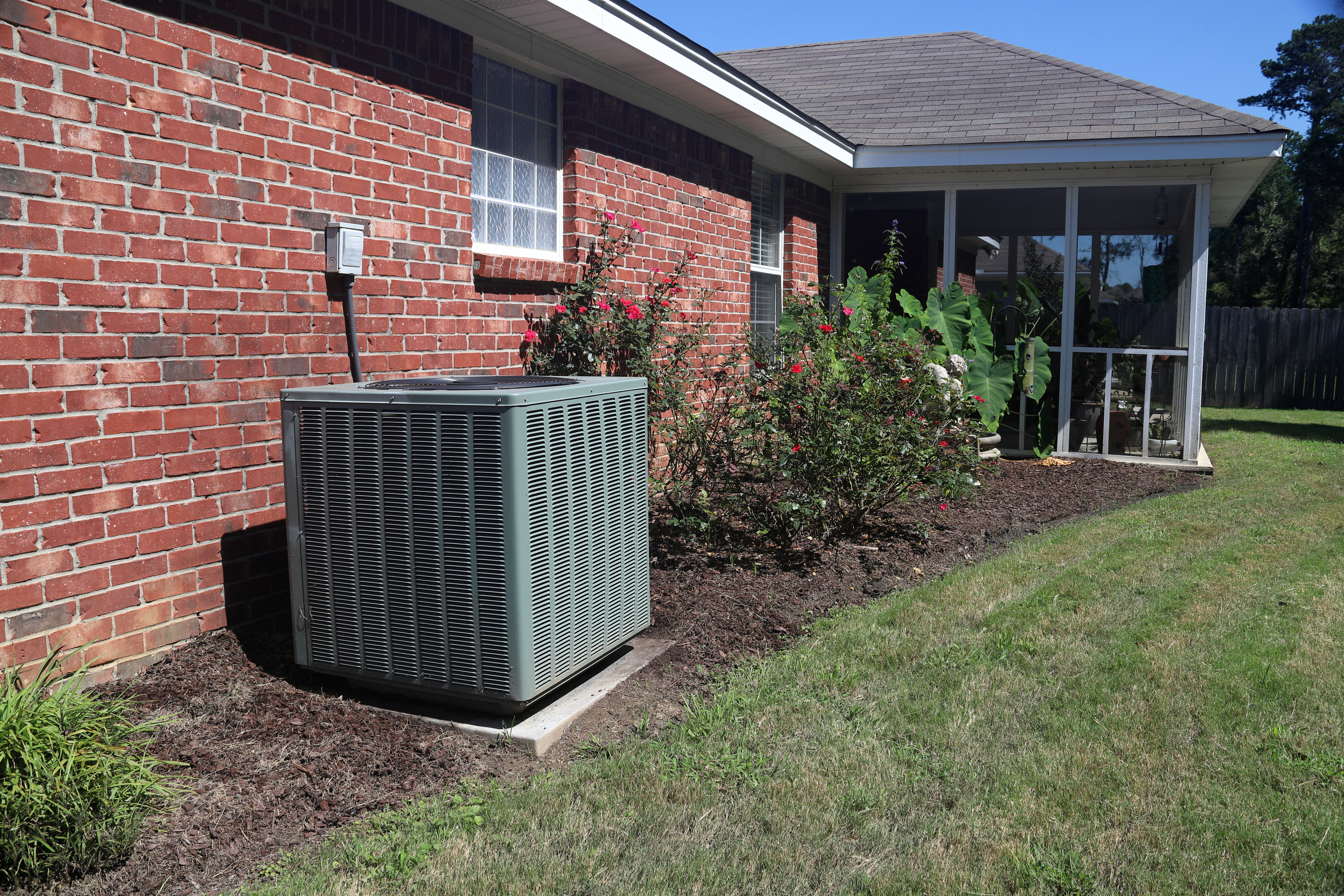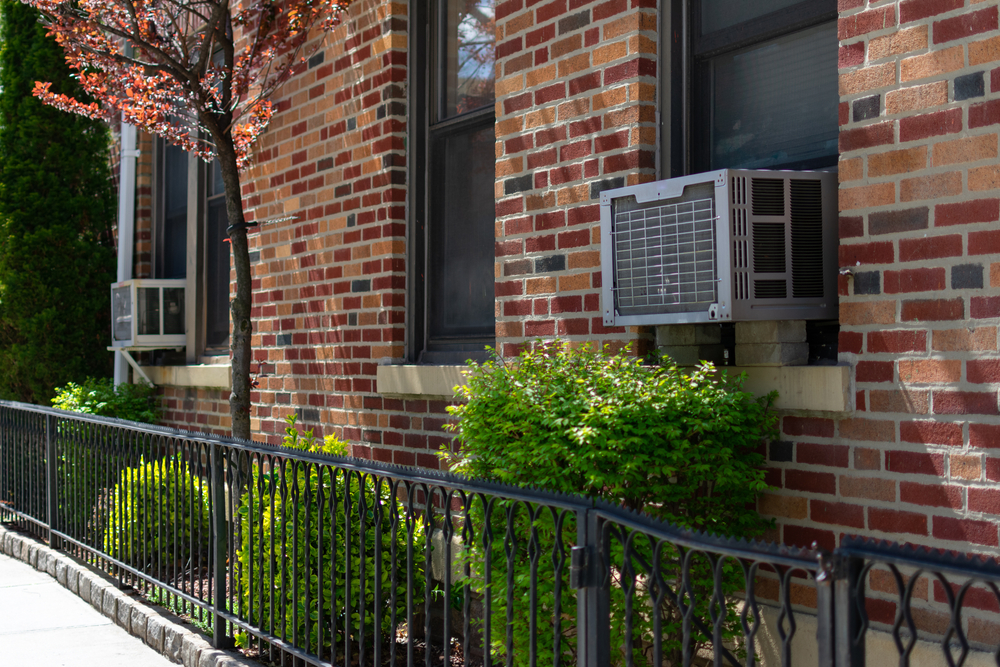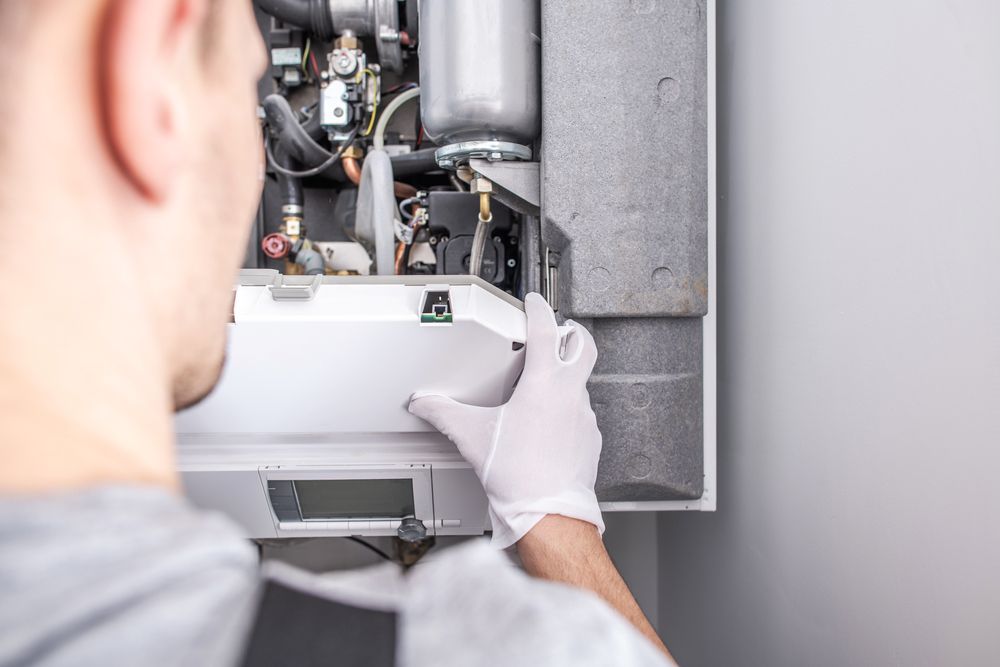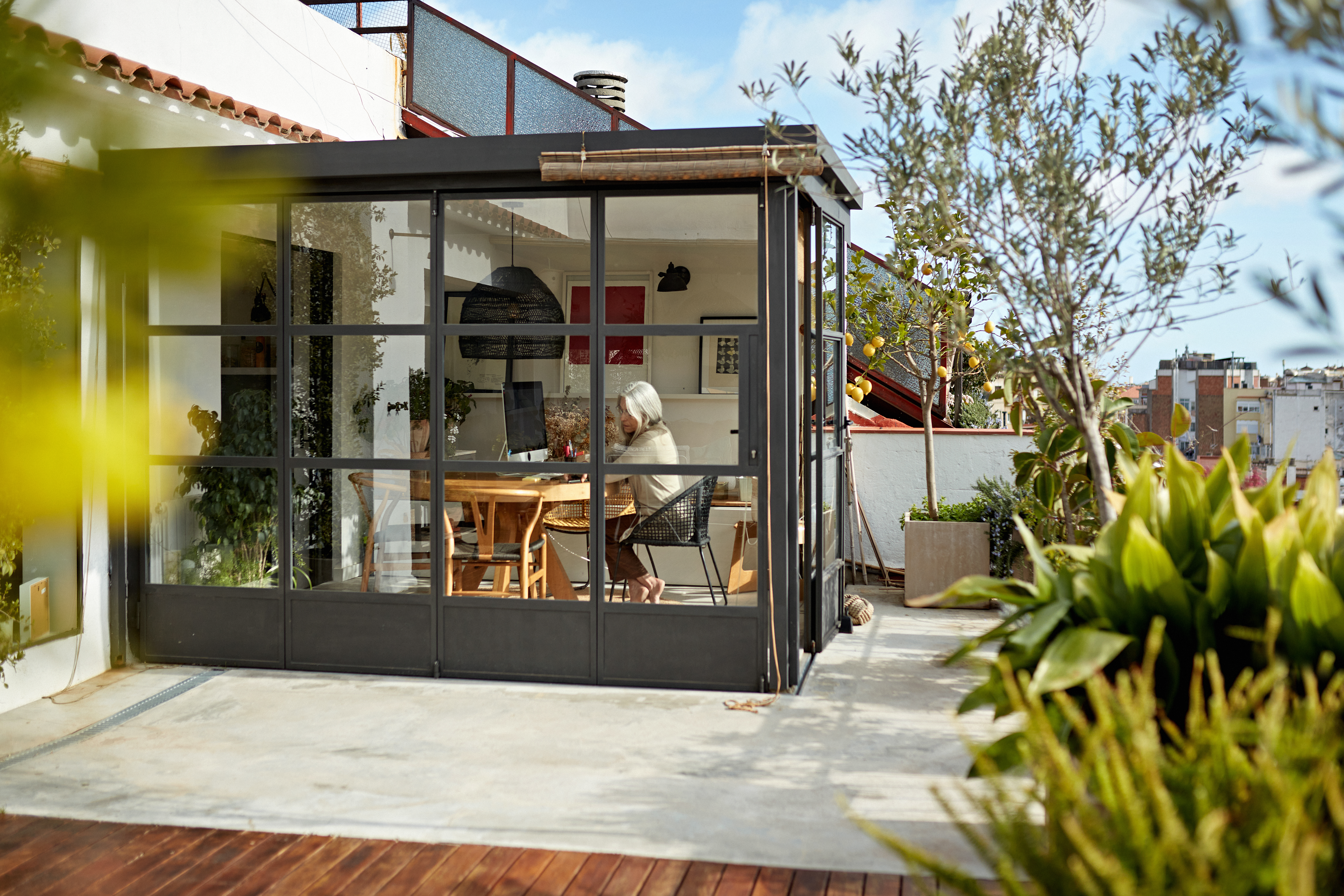HVAC vs. Furnace: Are They Different?

Your home is the one place where you have complete control over the temperature. You have the freedom to choose how warm or cold you want to be. You get to choose what time the air conditioning kicks on or when the heat starts. But how exactly do you control the temperature in your home?
In order to maintain a comfortable indoor temperature, you need an HVAC system. An HVAC system stands for heating, ventilating, and air conditioning and it’s made up of three units that serve those purposes. An HVAC system has a thermostat that will detect increases or decreases in temperature and alert the system to perform the necessary action to either heat or cool your home.
A furnace is another system responsible for heating through hot air circulation. A furnace also has a thermostat that detects increases or decreases in temperature, but it heats the air using a fuel, such as gas or oil.
An HVAC system serves many purposes, such as heating and cooling, while a furnace only serves one: heating. There are many differences between an HVAC and a furnace. The only similarities are that they both require a complex system of ducts, and they are both designed to keep your home at comfortable temperatures. Keep reading to learn more about HVAC systems and furnaces.
What is the Difference Between an HVAC System and a Furnace?
First and foremost, let’s get into the differences between an HVAC and a furnace. Your HVAC system is essentially how your home is able to stay warm in the winter and cool in the summer. It’s also responsible for keeping the air inside your home clean.
An HVAC system is made up of several components — an air conditioner, furnace, heat pump, water heater, and thermostat. Each serves a different purpose for cooling and heating your home. We’ll get into the purpose of a furnace within the HVAC system below.
To learn more about the intricacies of the different parts of an HVAC system work, refer to the FSEC Energy Research Center.
What is the Role of a Furnace within the HVAC system?
The furnace is an essential component of an HVAC system. A furnace is relatively large, so it’s usually located in the basement or attic.
A furnace uses a fuel source, which can be natural gas, oil, or electricity, to heat incoming air. The blower motor on the furnace then dispenses the air through the ductwork and out the supply registers located throughout your home. The furnace then brings cool air back in from return registers to begin the process again.
A furnace essentially serves one purpose: heating your home. When your indoor temperature drops, the thermostat on the furnace sends a signal to the boiler to heat the gas or oil that then heats the house.
What is the role of an AC in an HVAC system?
The air conditioner is an equally important part of an HVAC system. The main purpose of an air conditioner is to cool your home by removing existing heat from inside.
There are three types of air conditioners: central, ductless, and window. Central AC provides cool air to your entire home, and window AC units provide cool air to the room in which they’re installed. A ductless AC is a greener alternative similar to central AC. Ductless AC units provide cool air without the need for ductwork in your home.
It’s important to note that your furnace and air conditioning are often connected. The blower motor is the same distribution source for air conditioning as it is for the furnace. Both the AC and furnace work together so that your HVAC system can work as efficiently as possible. Learn more about how AC works from Energy.gov.

HVAC vs. Furnace: Do You Need Both?
Now for the most important question of the HVAC vs. furnace comparison: Do you need both?
You don't have to choose between one or the other. A furnace is generally part of the entire complex HVAC system. The furnace serves the heating purpose of the HVAC system, while the air conditioner performs cooling.
A standard HVAC system has several parts. The furnace is typically located in the basement, while the air conditioning tends to be placed outside the home. There are also all-in-one HVAC systems, which are more compact and include all the necessary parts in one unit located inside the home.
So, we know that your furnace and air conditioning are connected, but can a furnace work without an AC and vice versa?
It depends. HVAC systems operate differently depending on your home and the climate where you live. Some homes may have an AC but no furnace, while other homes may have a furnace but no AC. For example, in warmer climates, homeowners may decide to install a window AC because they don’t need a home furnace. A window AC is much more affordable than central AC.
A furnace may only be appropriate if you live somewhere cold. Furnaces don’t use outdoor air to convert to heat, so they’re best for cold climates. An alternative to a furnace is a heat pump, which is great for areas with milder winters. A heat pump uses outside air to both heat and cool your home, acting as both your air conditioner and heater.
Furnace vs. AC: How Do They Work?
Now, we’ll get into the details of a furnace vs. air conditioner and how they work. Your furnace and AC work independently and together. The AC part of your HVAC system uses an outside unit to chill refrigerant while the furnace uses fans and coils to heat the inside air.

HVAC vs. Furnace: Cost & Installation
In order to keep your home at a comfortable temperature throughout the year, your HVAC system must be properly installed. You also need to know when to replace your HVAC system so that it can continue distributing high-quality, clean air throughout your home at all times.
Let’s get into the differences between an HVAC vs. furnace when it comes to cost and installation.
Installing and replacing an HVAC system is both costly and timely. But you don’t have to replace the furnace and the HVAC at the same time; you can repair them separately. However, if a major component of your HVAC isn't working (like the furnace), that’s likely a sign you should upgrade the entire system.
If you’re not sure whether to replace or repair a part of your HVAC system, talk to a contractor. They can help you decide your next steps by looking at how the different parts of your HVAC system are working together.
A number of factors can impact the overall cost of installing an HVAC. These include the brand, type of HVAC system needed, HVAC service provider costs in your region, whether you’re replacing just the furnace or whole system, and more.
If you do decide it’s time to replace your entire HVAC system but don’t have the funds to get started, consider PACE financing. PACE is specifically designed to help homeowners make eco-friendly improvements to their homes — including new HVAC systems. HVAC financing will cover the upfront cost of installing an HVAC system so you can upgrade now, and pay for the improvement over time with a low-interest rate.
PACE isn’t a loan, it’s a property assessment, meaning the financing is tied to your home (not you) and paid back as part of your property tax bill.
Make Sure Your HVAC System Is Efficient First
Ensuring your HVAC system is in top order will help you keep your home’s temperature regulated while saving you money. The more efficiently your HVAC operates, the less work it’ll have to do, and the less energy it’ll use. Plus, energy-efficient systems are better for the environment, so it’s a win-win.
Realizing your home needs a major upgrade can be intimidating. But replacing your HVAC system doesn’t have to be a choice between your financial well-being and physical comfort. If you find that you need to replace your HVAC system, apply for PACE financing to help you get started — you’ll receive a decision in just 30 minutes. You can use PACE financing to replace the HVAC system in your home with no upfront costs and no payments for up to a year. We’ll even match you with an independent contractor from our network, so you can trust they know what they’re doing when it comes to your HVAC replacement. Get the process started today!




